Ontario “three-party system in transition” is back .. but can Premier Kathleen do it, at last?
Feb 18th, 2013 | By Randall White | Category: In BriefIn the early 1970s John Wilson and David Hoffman wrote : “The strength of the Conservative party in modern times makes it difficult to believe that Ontario was once ‘by large odds a Reform and not a Conservative Province.’ In fact, however, the Liberals were the leading political group in the province for the better part of the nineteenth century, and continuously from the introduction of responsible government in1848 to the collapse of the Ross government in 1905.”
Those of us who, like Wilson and Hoffman, first became acquainted with Ontario government and politics when the strength of the provincial Conservative party was still so overwhelming are bound to look on the swearing in of Kathleen Wynne’s new “relentless progressive” Liberal government this past Monday, February 11, 2013 with some unique awe.
The hours left before the Legislative Assembly of Ontario gets back to business, on Tuesday, February 19, invite some quick big-picture look at the changing regional political culture – and what it may or may not mean a little further down the road?
To start with, only a few years after it first appeared in 1972, Wilson and Hoffman’s “especially noteworthy” article on “Ontario, A Three-Party System in Transition” seemed to have been eclipsed by events. A second edition of the Martin Robin reader on Canadian Provincial Politics, in which the piece first appeared, came out in 1978. One unusually wise and prescient reviewer moaned: “Astonishingly, the only essay dropped altogether is the one on ‘Ontario, A Three-Party System in Transition,’ by John Wilson and David Hoffman.”
Some 35 years later, Wilson and Hoffman’s three-party system in transition theme seems to have acquired some provocative fresh relevance. It arguably ought to become a regional cult classic of some sort (if only there were enough people interested in the even only half-serious study of Ontario political history to make such things possible).
The last few sentences of the 1972 article similarly alluded to its nicely tabulated evidence “which suggests that before very long there must be an end to the pattern of competition which has persisted since the end of the Second World War … One thing, however, is certain. The character of Ontario politics will not be seriously changed until one of the opposition parties has taken power from the Conservatives and kept it for more than two terms. No one has managed that for nearly seventy years.”
Some 40 years later, we can now see that the Dalton McGuinty Liberals did more or less manage this feat at last in the provincial election of October 6, 2011. At the same time, the rather fragile fact that it will not be former “Premier Dad” McGuinty but the new Liberal Premier Kathleen Wynne who will meet the Legislative Assembly on February 19, 2013 reflects continuing ambiguities in just how the feat has finally been achieved.
(While the parallel facts that Ms Wynne is both Ontario’s first female premier, and the first openly gay first minister in Canada, also suggest that Canada’s most populous province just may be staging some kind of return to its more ancient 19th century status as “by large odds a Reform and not a Conservative Province.” Meanwhile, back on the banks of the Ottawa River, Prime Minister Harper must be wondering as well : what does this mean for the present-day federal Conservatives, who relied so much on Ontario voters for the majority government they finally managed to bring off, also in the apparently poignant Canadian political year of 2011?)
1. Can Kathleen do it?
“Can Lloyd George Do It?” was a question famously raised by John Maynard Keynes and Sir Hubert Douglas Henderson about the last Liberal prime minister of the United Kingdom in 1929.
The analogy makes sense here partly because Ontario politics still leans strongly (if also increasingly covertly) on its British parliamentary precedents. (And note, eg, the Union Jack that remains in the left-hand corner of the official provincial flag, adopted as a kind of reactionary gesture when the independent maple leaf flag took effect Canada-wide in 1965.)
It also makes sense because the answer to “Can Lloyd George Do It?” for the old British Liberal party was essentially No. (And thus the Labour Party took over as the main voice of progress in UK politics – though that too may be changing somewhat again nowadays.)
If Kathleen Wynne can, on the other hand, get some form of Yes to a similar question north of the Great Lakes over the next few years, she will have taken quite a big further step away from the various legacies of the old colonial “British connexion,” which still has some special relationship with the Conservative political tradition in Canada’s most populous province.
At the same time, right now in the real world of politics the answer to “Can Kathleen do it?” is clearly far from clear. To take just a few immediate cases in point :
* There are the ongoing McGuinty scandals that no doubt won’t be going away after February 19. See, eg, “Kathleen Wynne should take lie-detector test, says Tory MPP Frank Klees … The Conservatives say they don’t believe Premier Kathleen Wynne when she says she wasn’t involved in the decision to cancel a gas plant” [way over the top, of course, but …] ; and “Kathleen Wynne wants auditor general to expand gas plant probe … [i]n a move reminiscent of former prime minister Paul Martin’s 2004 decision to strike the Gomery commission into the federal Liberals’ sponsorship scandal that happened on Jean Chrétien’s watch.”
* Even if the ongoing McGuinty scandals don’t lead quickly to something like a spring 2013 general election, Ms Wynne’s new minority government seems vulnerable to a few immediately damaging losses of precious seats, in by-elections within the next six months to replace a few resigning cabinet ministers. See, eg, “Liberals in dogfight to hold Chris Bentley’s London seat” ; “Ontario NDP leader Horwath tours Windsor, attacks Liberals, talks by-election” ; and “NDP would win riding of Windsor-Tecumseh in by-election: Poll” (unless Sandra Pupatello runs in the by-election, which the latest intelligence seems to be saying she will not!).
* While the latest province-wide general election polls are not devastating, they do suggest that, as Premier Kathleen herself has acknowledged, her new government’s job is just beginning. See, eg : “Ontario voters split three ways, according to polls …Â survey shows the PC’s with 33 per cent support followed by 31 per cent for the New Democrats and 30 per cent …Â Liberals” ; “Wynne, Hudak and Horwath in dead heat: Poll …Â If premier-designate Kathleen Wynne was hoping for a post-leadership convention hike in her polling numbers, a new Abacus Data survey shows that she will be sorely disappointed … most Ontarians don’t even know who Wynne is” ; and “Half of Ontarians believe province on wrong track: Poll.”
2. Prospects of Liberal-NDP co-operation?
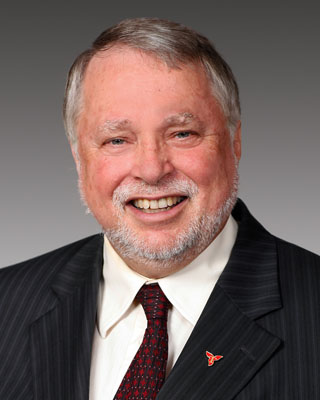
Ted McMeekin, Minister of Community and Social Services, MPP Ancaster - Dundas - Flamborough - Westdale.
This past Thursday Martin Regg Cohn at the Toronto Star wisely observed : “Without NDP support, the minority Liberal government is doomed to defeat. The question is when.” (See “Labour leaders fear NDP-Liberal rivalry may spell Tory triumph: Cohn … New Democrats dream of disembowelling the Liberals to seize power. Unions fear that would let Tim Hudak’s Tories sweep up the middle.”)
Dalton McGuinty tried to revive the old Bill Davis strategy of using both opposition parties (sometimes one and sometimes the other) to prop up the “major minority” government he managed to hang on to a little too precariously in October 2011. But one of the various reasons Premier Dad finally resigned last fall was that this strategy failed to work at all as well for him in the early 2010s as it did for Premier Davis in the late 1970s.
The underlying logic here appears to remain in the current moon-of-wintertime air. See, eg : “Ontario’s opposition parties react to province’s new cabinet, in very different ways” ; “Tory Leader Tim Hudak trots out his shopping list for spring budget”; “Tim Hudak wants student loans tied to marks …Â ‘We don’t want to reward mediocrity’” ; and “Kathleen Wynne and Andrea Horwath get down to the business of government: Cohn.”
At the same time again, exactly where Andrea Horwath’s collective NDP head is finally at on all this is not easy to figure out either (and perhaps even for her etc?). Personally, I like the concept explored on this site last fall: “Best outcome of next Ontario election – some kind of Liberal-NDP / NDP-Liberal co-operative government????.” And I’d be more than happy to see Ms Wynne and Ms Horwath experiment with this concept before the next election.
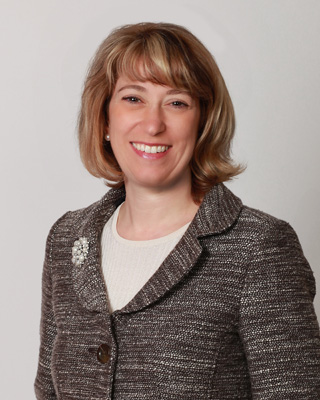
Laurel Broten, Minister of Intergovernmental Affairs, Minister Responsible for Women's Issues, MPP Etobicoke Lakeshore.
Yet as Martin Regg Cohn at the Toronto Star has also stressed, again, some “New Democrats dream of disembowelling the Liberals to seize power. Unions fear that would let Tim Hudak’s Tories sweep up the middle.”
You might think it is a bit rich for “Unions” to fret too much about how competition for the progressive vote can benefit the Hudak Tories, when at least some (public sector) unions have also been doing their best to foster virtually the same kind of dysfunctional progressive rivalry – with the same benefits for the Hudak Tories. Yet, whatever else, it does seem clear enough that the new Wynne Liberal government’s chances of succeeding in any immediate future have a lot to do with the willingness of Andrea Horwath’s New Democrats to support their progressive Liberal brethren in the immediate here and now. And the willingness of Ms Horwath and her party to provide such support for any significant length of time seems not all that clear at all.
3. Courting Alice Munro’s rural Ontario
Anyone who remembers what the Ontario Liberals still were during the 30-year generation that followed the Second World War will find their current liabilities in so-called “rural Ontario” more than a little surprising. (Their late 1960s / early 1970s old agrarian democratic leader Robert Nixon, eg, once told a reporter who would later write an interesting book: “Sometimes I just want to go back to the farm and roll up the driveway behind me.”)
The current polls nonetheless show, in one degree or another, that : “Most of the support for the Ontario Liberals comes in urban Toronto with the Grits coming up short everywhere else in the province.” And Kathleen Wynne, the openly gay member of the legislature for the old Toronto suburban riding of Don Valley West, often seems especially vulnerable here. (See, eg, “Kathleen Wynne’s battle against the prejudice of Torontophobia: Cohn … Times have changed for bigotry and sexism. But trash-talking Toronto remains fair game.”)
As matters stand,.Premier Wynne has a two-forked strategy for at least trying to deal with all this. To start with, “Kathleen is focused on the priorities of farmers and Ontario’s $34-billion agri-food industry. To ensure those voices are heard, she is also the Minister of Agriculture.”
For added weight and heft on something broadly resembling a parallel theme, Premier Kathleen has appointed Jeff Leal, member of the Legislative Assembly of Ontario for Peterborough since October 2003, to a new cabinet position known as “Minister of Rural Affairs.” As Mr. Leal has explained to his local media, the “creation of the rural affairs ministry ‘reinforces our commitment that we want to make to rural Ontario’.” He “also identified infrastructure as a major issue for his newly created ministry, which was split off from the former portfolio of agriculture, food and rural affairs.”
Premier Kathleen herself has said a number of things about her new Rural Affairs ministry, which almost make you think she (or someone on her staff?)Â may have been reading a provocative new book of essays by several hands, edited by Gordon Nelson “distinguished professor emeritus, Faculty of Environment, University of Waterloo,” and published in 2012 by McGill-Queen’s University Press, under the provocative title, Beyond the Global City : Understanding and Planning for the Diversity of Ontario.
According to some inevitably hyperbolic promotional material, Beyond the Global City is “[l]ooking beyond the smoke screen of Toronto’s rapid and costly growth to re-envision sustainable planning in Ontario’s neglected regions. Policies promoting Toronto as a global city and provincial economic engine have been seen as beneficial to the development of all of Ontario, yet much of the province has borne significant environmental, social, economic, and political costs as a result of one city’s growth. Contributors to this volume call for a radical re-imagining of public policy at local, provincial, and federal levels, that accounts for Ontario’s overlooked regions.”
For further and somewhat more objective enthusiasm about Gordon Nelson’s provocative new volume, see here, here, here, here, here, and here. And anyone who thinks the revived agrarian democratic quest of the first Lesbian Ontario premier from the Sodom and Gomorrah of Toronto is hopeless from the start should also consult “Is salvation for Ontario Liberals somewhere out there in Alice Munro’s rural Ontario?” (which appeared on this website just this past December), and “Ontario’s new premier could prove to be a Wynne-win situation”
In the first case here, remember that the mother of the youthful heroine of Ms Munro’s still impressive Lives of Girls and Women, in the fictional rural Ontario small urban centre of Jubilee (aka Wingham, Ontario), carefully cultivates her mind, intermittently sells encyclopaedias to raise ready cash, and listens to the Metropolitan Opera on CBC radio on Saturday afternoons. Premier Kathleen herself, who grew up in Richmond Hill, Ontario, when it wasn’t exactly part of the Greater Toronto Area as it is today, and who had a conventional marriage with three children before she came out in her present long-term relationship with another woman, could arguably qualify as a complex character in an Alice Munro story.
It may be even a little more robustly interesting that the author of “Ontario’s new premier could prove to be a Wynne-win situation,” published on Valentine’s Day 2013, was no less than Bryan Tuckey, “president and CEO of the Building Industry and Land Development Association” in Canada’s most populous province,.
As Mr.Tuckey has urged, “Kathleen Wynne is not only the first female to be Premier of Ontario, she is also the first premier to have been a Minister of Municipal Affairs and Housing.” You learn things about the “diversity of Ontario” in this job. The majority of the people of the province who still live beyond any reasonable definition of the Greater Toronto Area still need to get to know Premier Kathleen quite a lot better than they do now. But if and when they do (assuming she can conspire to keep her first government alive for a while, before having to face another general election), they just might find her surprisingly attractive – like a very bright, energetic, and community minded school marm in an old one-room rural Ontario schoolhouse, where the concession road meets the main township highway.
4. Continuing financial challenge : “If it was easy, it would have been done already”
For a host of excellent reasons, the last three parts of this extended six-part commentary must be much, much, much, much shorter than the first three. (To start with in this case, it is starting to get quite late at night – and/or early in the morning, and in my advancing age I tire much, much, much more quickly than I used to. Much more importantly, many or even any surviving readers at this point will also be wishing that I gave up altogether at least a thousand or so words ago!)
Under the “financial challenge” heading, in any event, it is enough to say that Dalton McGuinty’s problems with his October 2011 major minority government had a lot to do with the very thorny politics of navigating Ontario’s current financial challenges without terminally alienating the less economically sensitive (some would say literate) branches of the progressive base. These challenges remain. And it is a sign of their continuing thorns that Mr. McGuinty’s last finance minister, Dwight Duncan, has decided to return to the many comforts of private life in Southwestern Ontario.
On the plus side of the current ledger, it is probably a good sign that Kathleen Wynne’s transition team has included “Don Drummond …Â Chair of the Commission on the Reform of Ontario’s Public Services (2011-2012) …Â Retired Senior Vice President and Chief Economist at TD Financial Group …Â former Associate Deputy Minister, Finance Canada.”
Meanwhile, Ms Wynne’s replacement for the retiring Dwight Duncan is Charles Sousa, who finally helped her out politically so much at the Liberal leadership convention that made her Ontario’s new premier, for the time being at any rate.
It is inevitably unclear at this point just how well the new minister of finance will do. But a recent report in the Globe and Mail has some optimistic edges: “Born in Toronto’s Kensington Market, where his father ran a wholesale food business after emigrating from Portugal, Mr. Sousa’s family relocated to Mississauga when he was a child. After university, he started his own company providing financial services to small business. Later, he went to work for RBC [Royal Bank of Canada], first as a commercial account manager, then as a senior marketing manger at the firm’s investment bank. In his last role, he oversaw relations with policy makers in Ottawa …Â ‘IÂ recognize that it’s not going to be easy,’ he said Monday [February 11]. ‘If it was easy, it would have been done already.’” That could qualify as at least the beginning of some kind of useful wisdom.
(And then there are the outright political struggles with the less economically sensitive branches of the progressive base – some of whom claim that economics is not the issue, even when it almost certainly is? On this and related fronts see, eg: “Premier Kathleen Wynne taps long-time education advocate Liz Sandals as minister to tackle teacher turmoil” ; “Liz Sandals believes teachers keen to resume extracurricular activities” ; “Kathleen Wynne ‘optimistic’ about talks with teachers’ unions” ; and – a sign of just how challenging the other side of the financial equations can equally be – “California finances praised but not upgraded by Moody’s.”)
5. “Lots of rookie ministers in Wynne’s expanded cabinet”
The cabinet with which Premier Kathleen will be greeting the returning Legislative Assembly of Ontario on Tuesday, February 19 has “expanded to 27 from McGuinty’s 23.” The new premier has explained: “My cabinet is slightly larger than the last because of the serious work that must be done.”
Knee-jerk small-government ideologues in what still calls itself the Progressive Conservative Party of Ontario have complained that the four more cabinet ministers just show how little Premier Wynne appreciates what the province’s real problems are.
You probably have to be a similarly inclined ideologue yourself to find this kind of critique altogether compelling. But a more serious problem may lurk between the lines of such headlines as “Lots of rookie ministers in Wynne’s expanded cabinet … At least nine of the new members Wynne has picked don’t have prior cabinet experience ….”
There is of course nothing to say definitively that a rookie cabinet minister can’t do a good job. But there are certainly tricks to the vocation that it often takes a bit of time to master. Lack of mastery can sometimes embarrass governments – especially in a political culture where at least the illusion of so-called managerial competence counts for as much as it often said to count for in Canada’s most populous province.
One big risk for Premier Kathleen, that is to say, may be that her government finally comes off as a bit too “flaky” for the hard-working, sober mind of Ontario. And a cabinet made up of one-third rookies may heighten this risk.
The other side of this kind of argument is that a cabinet with one-third rookies may also bring much-needed fresh breezes and constructive new energy to an older team in some trouble – while still being lucky enough to avoid any altogether damaging political or public relations disaster. Whatever else, Premier Kathleen has already shown some impressive boldness in her initial approach to her new job. On the most optimistic assumptions, that could finally prove both quite refreshing – and at least popular enough for political survival in the cold, cruel world of anglophone “Central Canada.”
6. Key questions still how soon will next Ontario election be … and just what might all this mere provincial political history finally mean for Stephen Harper in Ottawa ?
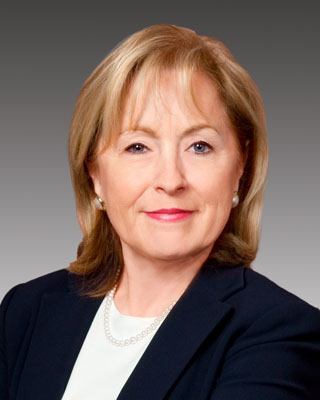
Madeleine Meilleur, Minister of Community Safety and Correctional Services, Minister Responsible for Francophone Affairs, MPP Ottawa - Vanier.
If Ms Wynne’s first government is still here a year from now (and even if it is finally expecting a spring election, but in the spring of 2014), it will probably be safe to say that she has at least set the stage for the finally new Ontario that Wilson and Hoffman saw in the wings, as long ago as the early 1970s, to emerge at the vital centre of things at last.
A lot of questions about the ultimate shape of this new Ontario will remain – including the question of just how much its natural governing party must involve some kind of ongoing Liberal-NDP (or NDP-Liberal) co-operation! But the new “relentless progressive” Ontario regional political culture of the early 21st century will be at least somewhat more secure than it is right now, with a slightly more assured long-term future.
The simplest answer to the further question of just what this might mean for Canadian federal politics is that strong partisans of Stephen Harper’s new Conservative Party of Canada probably ought to be happy (maybe). There is certainly a considerable wealth of historical evidence to suggest that Ontario voters like to put one party in power provincially, and another federally.
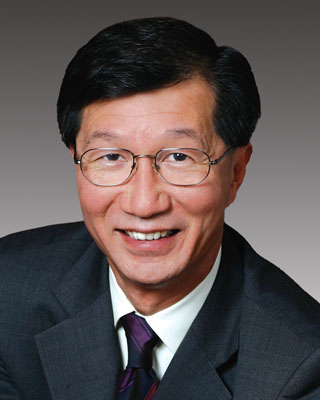
Michael Chan, Minister of Tourism, Culture and Sport, Minister Responsible for the 2015 Pan/Parapan American Games, MPP Markham - Unionville.
So the federal Liberals at least did very well in Ontario during the long reign of the provincial Progressive Conservative dynasty of 1943—1985. And, back in more ancient times, John A. Macdonald’s Conservatives did very well federally during the long reign of Oliver Mowat’s Ontario Great Reform Liberals, from 1872 to 1896.
On the other hand, it may also be that these patterns too are part of a regional past that is ending forever at last. It may even be that the finally new Ontario which Wilson and Hoffman saw in the wings as long ago as the early 1970s is going to prove something completely different than anything which went before. (Such as, eg, a growing new tradition of multi-party progressive co-operation in all parts of Canada, at both provincial and federal levels of government????)
Whatever else, and for the moment at any rate, it suddenly seems very interesting to wait and see.
PS: For the complete new Kathleen Wynne Cabinet see Office of the Premier : MEET THE TEAM – CABINET.
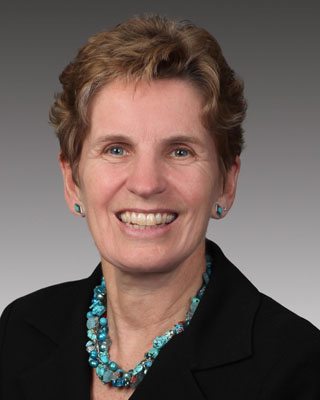
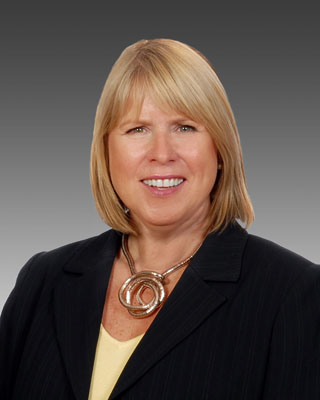
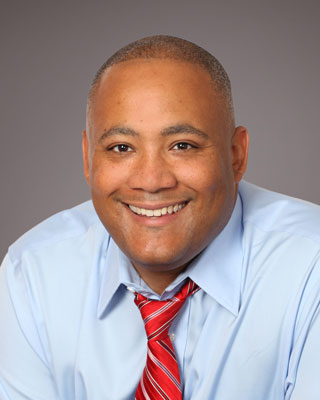
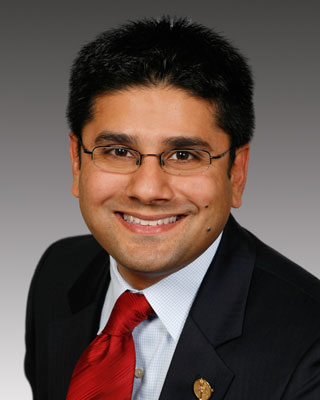
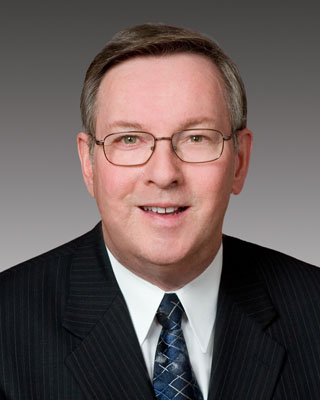
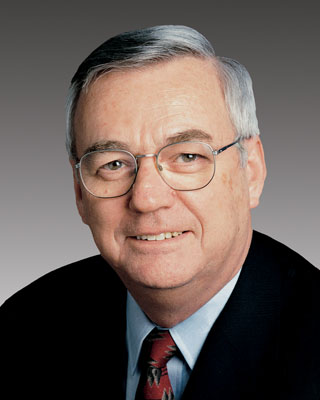
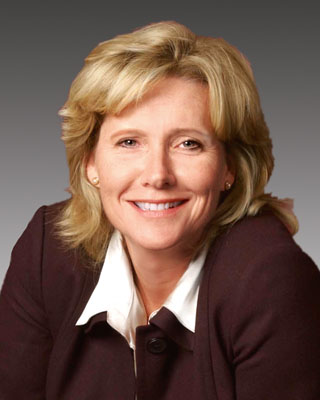
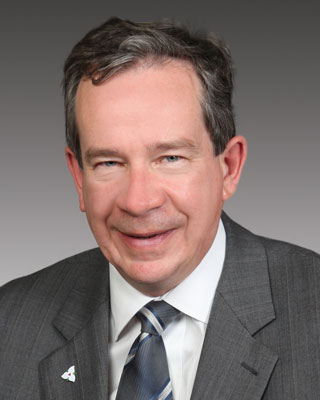
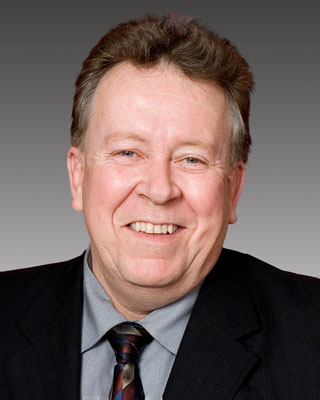
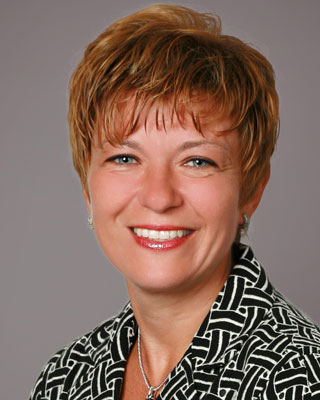
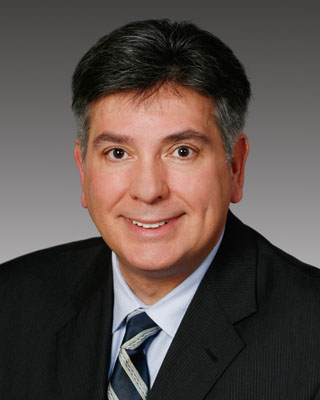
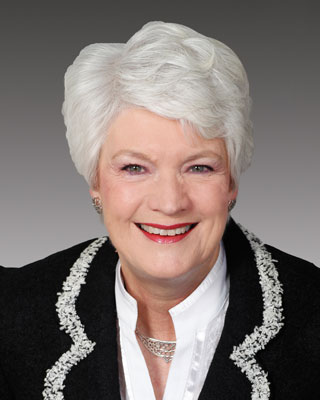
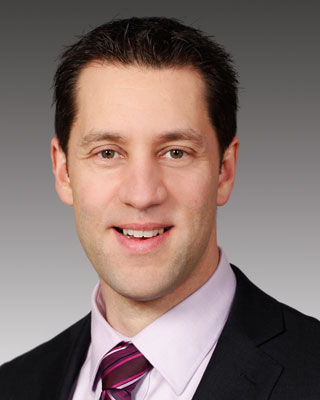


Not surprisingly, an article written solely for the GTA, or as is firmly believed by those who reside there, where the province of Ontario begins and ends. Meanwhile the rumblings of secession for the ‘rest of us’ are starting to reverberate louder and louder each day.
A bit distressed to hear Pat say “an article written solely for the GTA.” I take some comfort from the prospect that he didn’t actually read the whole too-long piece. Anyway, I am an admirer of Gordon Nelson’s Beyond the Global City, and I think it bears an important message. As I did try to make clear here, I am an admirer as well of Alice Munro’s rural Ontario. I certainly don’t think the province begins and ends in the GTA. But I don’t think talk about rumblings of secession scares anyone either. The real problems are a lot more complicated. The “rest of us” have to start coming up with an alternative policy agenda that goes beyond complaining — and works for all the diverse regions, from the Ottawa River to the Lake of the Woods.
I didn’t notice one mention of the biggest dividing factor that is seriously digging a massive canyon between the GTA and the rest of the province. The Green Energy Act. Rural Ontario is more than fed up at being used as the energy slaves of the GTA.
Dalton McGuinty stripped rural citizens of their democratic rights to quality of life, health and peace of mind when he started cramming these 500 to 600 foot industrial machines down our throats, giving us no say in the matter at all. Rural Ontario is fast becoming an industrial energy wasteland.
The backlash against this tyrannical policy is growing by leaps and bounds every day, with the anger and rage reaching a pitch that I’ve not seen in my many decades on this earth.
A recent release of information through the FOI found that the Liberal government and their minion ministries have been aware of serious health issues going back to 2006, caused by placing these machines too close to residential areas. Field officers reported feeling the effects themselves of the infrasound from IWT’s but were advised to basically ‘stand down’.
Despite numerous pleas to Kathleen Wynne asking her to call for a moratorium on any further placing of IWT’s so close to people’s homes, she has stated that she plans to forge full-steam ahead with Dalton’s policies and has no intention of giving any power back to rural citizens. In fact, one of her Liberal delegates stated that she intends to sit us down and talk some sense into us. This despite the fact that 91 rural municipalities across Ontario are demanding a moratorium.
Something’s going to snap as the intensity of this anger continues to fester, and Wynne would be wise to not treat rural residents like ignorant fools.
If the GTA wants to be world leaders in wind energy, let them place these turbines all over their area, from Niagara Falls all along the shoreline (onshore and off) up to Oshawa. Highly unlikely. Just as the gas plants were deemed to be better placed away from the GTA, so too the wind turbines, all to keep the biggest power hogs in this province lit up 24 hours a day, seven days a week.
So far what we’ve seen with Wynne is more of the same old, same old that we had during the McGuinty years. At best, she may win another minority government. Better still would be a party coming into power that decides to stop treating rural residents like second-class citizens.
Well at least it’s clearer to me what your real issue is here Pat. I certainly respect the depth of feeling some people have about wind energy. But it’s not my impression that it’s “the GTA” that “wants to be world leaders in wind energy.” And Mr.McGuinty of course is from Ottawa not Toronto. Your bottom line seems to be “a party coming into power that decides to stop treating rural residents like second-class citizens.” That just finally sounds like (professional even?) propaganda for Mr.Hudak to me.
Whatever else, Ms Wynne has, by acting as her own minister of agriculture and appointing Jeff Leal as a new kind of minister of rural affairs, tried to make clear that she does not in fact intend to treat “rural residents like second-class citizens.” Maybe if you really believe your own non-partisan rhetoric here, you should give her (and Jeff Leal) a chance. She’s only been premier, after all, for one week so far. And she is trying to reach out. I appreciate the time you’ve taken with your comments in any case.
And I appreciate you taking the time to respond. Trust me, I’m no huge fan of Hudak’s either, nor of Horwath.
I think rural Ontario was anxious to see what, if anything, Wynne planned to do to distance herself from the devastating policies of her predecessor, even though she was part of the team that put many of those same policies in place.
What we’ve heard from her since she became premier though has been more of the same condescension that we’ve heard previously. By the way, the lower case ‘p’ in premier is not accidental. It’s one thing to pay lip service by giving herself the title of agricultural minister and appointing a new minister of rural affairs. It’s entirely something else to actually listen to the people who have been pleading with Queen’s Park to listen to their experiences with living next to these giant industrial machines.
It’s frightening to think that she intends to stay the course, as she’s been oft heard to say, since I can’t imagine a more destructive course than the one we’ve been on, not just with the GEA issue in rural Ontario, but especially with the financial mess that we currently are in.
I’ll let you have the almost last word here Pat, except to say that personally I’m a lot more comfortable with Kathleen Wynne trying to manage our financial mess than either of her opponents — at least until she convinces me otherwise. You are of course entitled to your own opinions, just like the rest of us, no matter where we live in what is still, I think, a pretty lucky place all over, from what I can see traveling around..Best wishes.